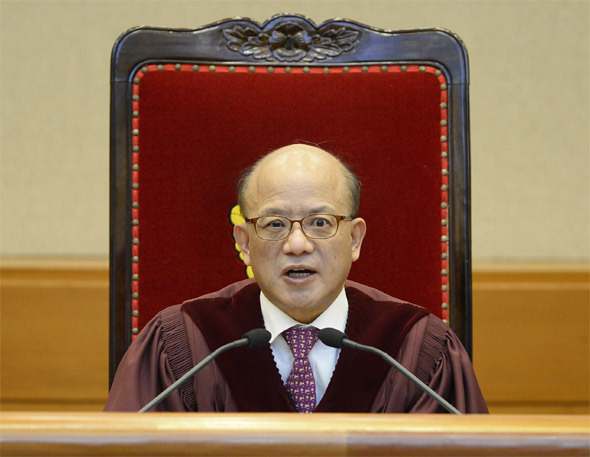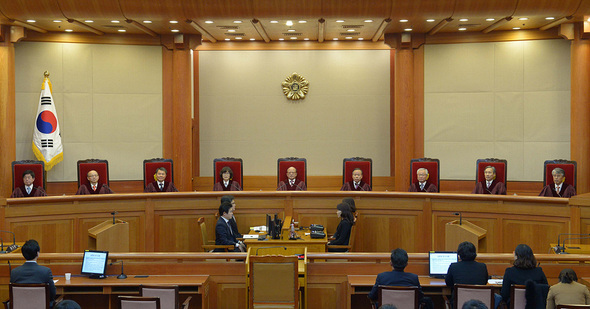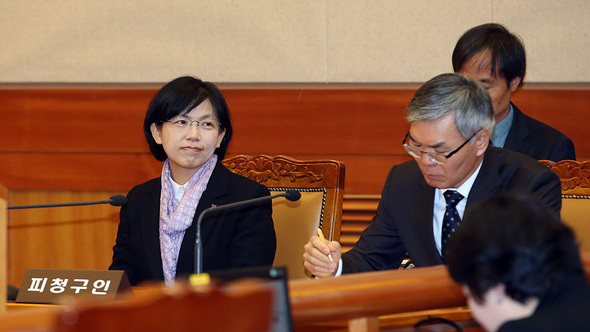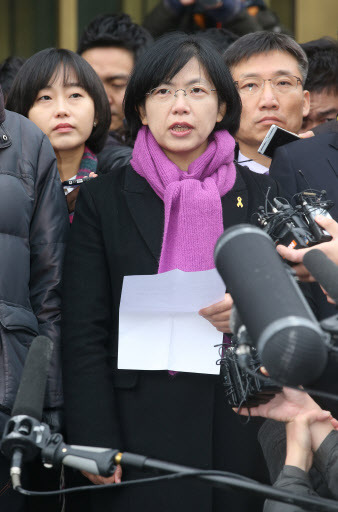 |
Constitutional Court President Park Han-chul reads the ruling to disband the Unified Progressive Party, Dec. 19. (pool photo)
|
The decision is the first such move in South Korea’s constitutional era, since 1948
On the morning of Dec. 19, the Constitutional Court ordered the disbandment of the left-wing Unified Progressive Party (UPP), the first such decision made in South Korea’s constitutional era, since 1948. |
The final Constitutional Court hearing on the disbandment of the Unified Progressive Party, Dec. 19.
|
 |
Unified Progressive Party leader Lee Jung-hee (left) sits next to her attorney waiting for the ruling at the Constitutional Court in Seoul’s Jongno district, Dec. 19. (pool photo)
|
 |
Unified Progressive Party leader Lee Jung-hee and the party’s lawmakers during a press conference outside the Constitutional Court in Seoul’s Jongno district, Dec. 19. (Yonhap News)
|




No comments:
Post a Comment